Why Is Your Cat STILL FAT After Giving Birth? Should You Worry?
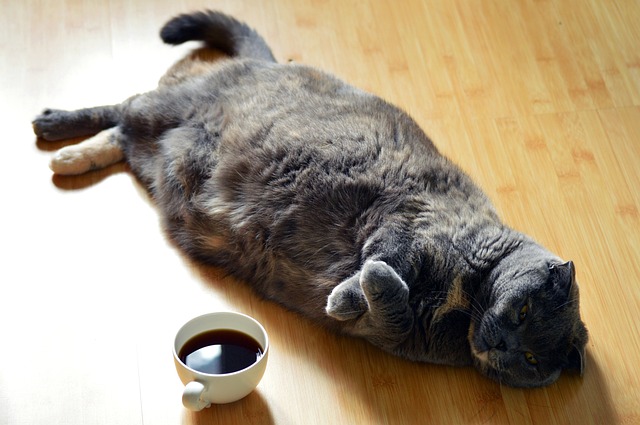
You'll agree with me when I say:
It's frustrating when your cat is still fat after giving birth. 😿
I mean, you did all the hard work, right?
Watching her grow and carrying those little bundles of joy.
And now, instead of a slim and trim mama cat, you're left with a fluffball that could rival Garfield.
It's enough to make you want to scream!
But don't worry, we're here to figure this out together.
Let's dive into the mystery and unlock the secrets to getting that post-baby bod back.
Shall we?
Why Is My Cat Still Fat After Giving Birth?
Postpartum cats may still be overweight due to excessive food consumption during pregnancy and nursing. Controlling their diet and portion sizes, increasing exercise levels, and consulting with a vet for a balanced diet can help them shed the extra pounds and maintain a healthy weight.
If your cat is still fat after giving birth, you might be wondering why.
Maybe you couldn't resist those irresistible eyes begging for extra food during pregnancy, or perhaps your cat has a genetic predisposition for gaining weight. Either way, it can be frustrating to see your fluffy Fashionista still waddling around.
But don't worry, we're here to help you figure out why.
One reason for sudden weight gain in postpartum cats is their insatiable appetite.
Just like humans, they tend to indulge a little too much while pregnant and nursing those adorable kittens. Can you blame them?
But this excess food consumption leads to excess weight, which isn't good for anyone involved, especially your cat's long-term health.
While it's normal for momma cats to retain some fat stores while nursing, excessive weight can still be an issue.
So, as a proactive cat owner, it's up to you to control their diet and portion sizes to prevent any additional pounds from piling on.
Nursing queens should consume up to four times the amount of food as regular cats to meet their increased calorie requirements.
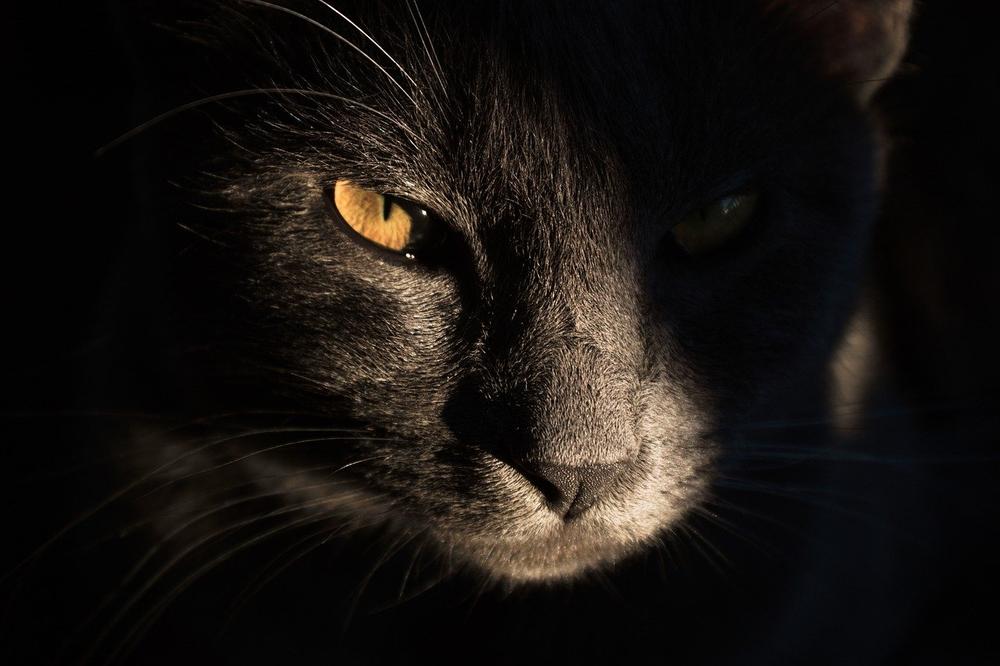
The exact portions will depend on factors such as the number, size, and age of her precious furballs.
Now, let's talk about those uncontrolled eating habits...
Just like us with a box of chocolates, if your cat doesn't know when to hit pause on the feast, she'll keep rocking that fluffy figure long after giving birth, whether she still has access to mountains of food or not (be honest here!).
To help your cat slim down, get active...
Lace up your sneakers, grab that trusty laser pointer, and increase her exercise level.
This will burn off those extra calories and move her towards a healthier weight.
In addition to exercise, tailor her diet accordingly.
Consult with your vet about finding the right balance of nutrients and calories to support her well-being while promoting weight loss.
Some of that newfound chub may be due to reduced activity levels during pregnancy and motherhood, genetic predisposition, or even overfeeding during those precious baby-carrying months.
So, in conclusion (oops, I mean, well anyways), keep your cat active with regular exercise and playtime to maintain her activity level.
And always remember, portion control is key when it comes to giving birth and beyond!
How Long Does It Take a Mother Cat to Be Normal Again After Birth?
After giving birth, a mother cat needs time to recover.
Here's what you should know:
- Rest is super important. After all that birthing and kitten-caring, mama cat needs plenty of rest. Give her a quiet spot where she can chill undisturbed.
- Nutrition is a big deal. Mama cats need extra food and water to keep up with their energy demands while nursing. Talk to your vet about the right diet for her.
- Don't be surprised if there are behavior changes. After birth, your cat might become less defensive and less interested in breastfeeding as her kittens grow up. It's just part of weaning.
- Weight gain happens. Mama cats tend to gain weight during pregnancy and after giving birth, but they usually go back to their old weight within a few weeks of weaning the kittens.
- Watch out for unexpected pregnancies. Just because your cat is nursing doesn't mean she can't get pregnant again soon after the last litter. Take precautions if you don't want more little ones right away.
Every cat is different, so keep an eye on yours and see the vet if something seems off.
And now, let's talk about another factor that can contribute to weight gain in mother cats...
Spaying or neutering.
But don't worry, there are ways to prevent excessive weight gain and keep your cat healthy post-surgery!
If I Spay or Neuter My Cat, Will It Cause Them to Gain Weight?
Weight gain after spaying or neutering is possible
Ah, the age-old question...
Will your cat put on weight after being spayed or neutered?
Well, it's not as simple as a yes or no.
When your kitty undergoes spaying or neutering, there can be some changes in their metabolism.
These changes might cause them to gain a few extra pounds.
Now, I'm not saying this will definitely happen, but it's something you should keep an eye on.
Prevention is key
But don't worry just yet!
There are steps you can take to prevent excessive weight gain after the surgery.
First and foremost, ensure you provide your furry companion with a balanced diet.
Don't overfeed them!
Instead, give them high-quality cat food that meets all their nutritional needs.
It's all about finding the right balance for your four-legged friend.
In addition to that, regular exercise is absolutely crucial.
Get your cat up and moving!
Play with them, give them toys to chase, and create opportunities for physical activities.
This way, they can burn off any excess calories and keep those unwanted pounds away.
Hydration matters too
One more thing, especially for mama cats:
Ensure they have access to moistened dry food or kibble throughout the day.
Why?
Well, it helps them stay hydrated, my friend. And we all know how important hydration is for overall health.
Oh, and here's one last thing - always keep an eye out for any signs of pain or unusual behavior following the spaying or neutering procedure.
Your cat should recover smoothly, but it's always good to be watchful and take note of any changes that could indicate a problem.
So, that's it.
Getting your cat spayed or neutered doesn't necessarily mean they'll pack on the pounds.
With the right approach to diet, exercise, and observation, you can ensure your feline friend maintains a healthy weight and lives their best life.
And now, let me share with you some essential information about a cat's ideal weight and how to ensure they receive the proper nutrition during pregnancy.
I've found that monitoring their body condition score is essential, as it provides a more accurate evaluation than solely focusing on weight.
Additionally, feeding them high-quality cat food formulated for their specific nutritional needs is crucial, as is ensuring they have access to clean and fresh water at all times for proper hydration...
What Should a Cat Weigh?
| Body Condition Score | Description |
|---|---|
| Underweight | Cats that are underweight may appear thin and lack muscle mass. They may have visible ribs, hip bones, and a prominent spine. |
| Ideal Weight | Cats with an ideal weight have a balanced body shape, with a defined waistline. Their ribs should be easily felt but not prominently visible. |
| Overweight | Overweight cats have excess body fat, which can be seen and felt. They may have a rounded abdomen and fat deposits over the back, hips, and base of the tail. |
| Obese | Obese cats are significantly overweight, with excessive body fat that affects mobility. Their waistline may be difficult to distinguish, and fat deposits are noticeable throughout the body. |
| Post-Pregnancy Weight | After giving birth, it is normal for a cat to have some extra weight due to lactation and increased food intake during pregnancy. However, if the cat remains overweight several weeks after birth, it may be necessary to adjust her diet and monitor her body condition. |
| Diet and Nutrition | A balanced and appropriate diet is crucial for pregnant and nursing cats. High-quality cat food formulated for their specific needs should be provided to ensure proper nutrition for both the mother and her kittens. Consulting a veterinarian for dietary advice is recommended to meet the nutritional requirements during this crucial period. |
| Healthy Weight Management | If a cat is still overweight after giving birth, gradual weight loss should be targeted. Feeding controlled portions of a balanced diet, engaging in regular moderate exercise, and monitoring the cat's body condition can contribute to achieving a healthy weight. It is important to consult with a veterinarian to develop a customized weight loss plan for the cat's specific needs. |
Your cat's weight depends on a few factors. Breed, size, and overall body structure determine what's considered a healthy weight for your feline friend.
Instead of just focusing on the number on the scale, you should monitor your cat's body condition score.
Check if they have a visible waistline from above and make sure you can feel their ribs without pressing too hard.
This gives a better indication of whether or not your cat is overweight or obese.
Now, here's another thing to keep in mind...
If your cat is pregnant or nursing, you should give them high-quality cat food designed for this stage of life. You need to provide them with the good stuff, packed with all the vitamins and minerals expecting or new moms require.
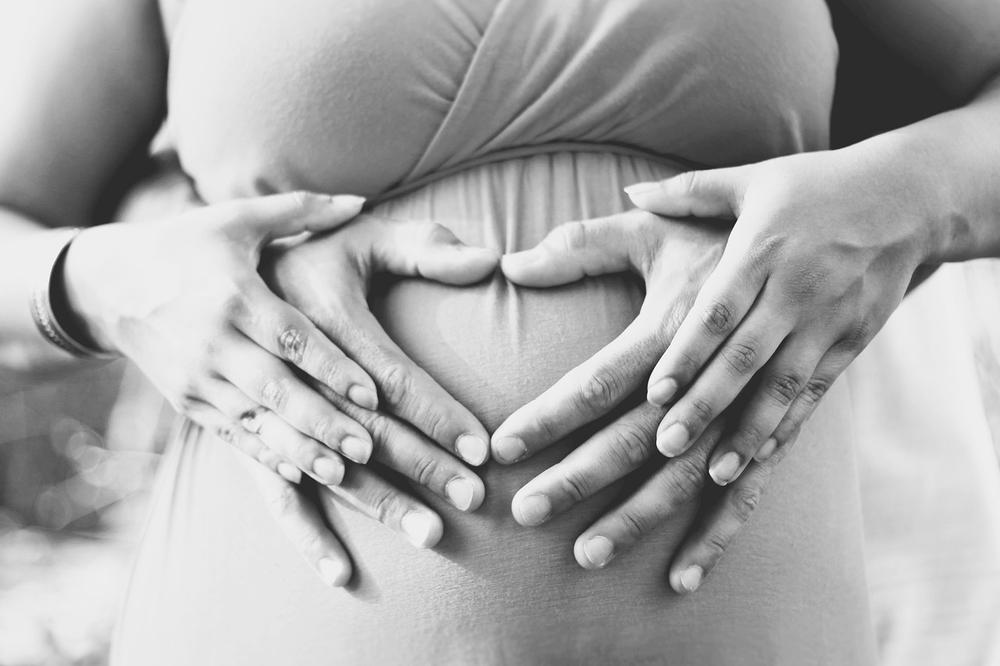
And yes, don't forget about water!
Clean and fresh water should always be available to keep your cat hydrated.
After all, nobody likes a dehydrated kitty.
And you know what can also affect your cat's appetite? Pregnancy.
If you notice your pregnant cat eating a lot, it's important to understand the reasons behind this behavior and find solutions.
I've written a helpful guide on this topic called Pregnant Cat Eating a Lot that provides insights and tips to address your concerns.
It's definitely worth a read to ensure the best care for your expecting feline friend.
Should I See My Veterinarian Before Starting a Weight Loss Plan?
Before you start your cat's weight loss plan, it’s crucial that you consult with a veterinarian.
I can't stress enough how important this step is if you truly care about your cat's well-being.
By seeing a vet first, you will uncover any underlying health issues that might be contributing to your cat's weight gain.
Trust me, you'll need their expertise in order to develop a safe and effective weight loss strategy for your furry companion.
When it comes to shedding those extra pounds, diet and exercise are your best weapons.
But here's the scoop on feeding time:
You should separate your overweight cat from others during meals so that you can keep an eye on their food intake.
This avoids any sneaky behavior, if you know what I mean.
Working together with your family and vet, you need to be open to adapting new strategies.
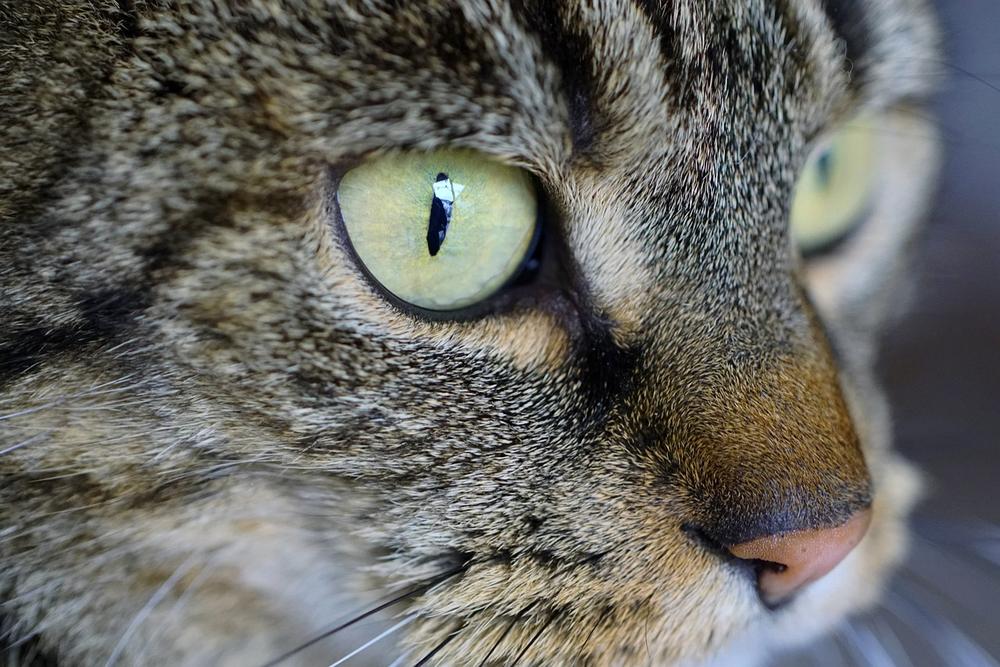
You'll have to rethink your cat's meal structure, opting for smaller meals throughout the day instead of one big feast. Believe me, it makes a huge difference.
However, hold your horses and don't rush into things just yet.
Only start implementing gradual weight loss measures after your cat has finished nursing and received approval from their trusted vet.
Patience is key.
Rapid weight loss can negatively impact overall health and milk production, and we definitely want to avoid that.
Keep a close eye on your cat's progress throughout this weight loss journey.
Continuously monitor their diet and activity levels, making adjustments as needed. Stay committed—your cat relies on you to help them achieve their desired body shape.
Nevertheless, always proceed cautiously, my friend.
We certainly don't want to jeopardize your cat's well-being just to fit them into those skinny jeans.
Take it slow, listen to your vet's advice, and provide your cat with the love and support they need during their weight loss journey.
What Are the Risk Factors for Obesity in Cats?
To prevent obesity in cats, consider these 11 important factors:
- Identify environmental factors that contribute to obesity.
- Limit access to an abundance of food.
- Provide opportunities for exercise and play.
- Implement controlled feeding routines.
- Spread cat's typical quantity of food over several small meals.
- Prevent overeating and hunger.
- Shift the cat's food bowl and litter box around the room.
- Promote greater mobility and exercise.
- Incorporate playtime into mealtime.
- Use reward toys, feeding balls, and interactive feeders.
- Stimulate both body and mind.
But wait, there's more!
Hiding meals and litter boxes for a few days can help burn more calories.
It also facilitates weight loss.
However, always be sure to provide a balanced and nutritious diet.
Especially for pregnant cats, they need the right support for their health and their kittens' growth.
Avoid excessive treats that lead to weight gain.
Now you're ready to keep your cat fit and healthy!
Listen closely, because this is the secret sauce: Further down the blog post, I'll explain why you have to understand the effects of obesity on your cat's health. Keep reading to discover why it matters if your cat is overweight.
And it gets better...
Not only can a high-protein weight-loss diet help manage your cat's weight, but there are also additional strategies to support their overall health and well-being.
Want to know the best part?
These tips can be especially beneficial for pregnant cats and those struggling with portion control...
Are High-Protein Weight-Loss Diets Ok for Cats?
| High-Protein Weight-Loss Diets for Cats | |
|---|---|
| Benefits | Promotes weight management, enhances satiety, maintains muscle mass, supports energy levels during weight-loss |
| Considerations | Consult a veterinarian, ensure tailored diet, gradually transition, monitor and adjust diet as needed, provide fresh water, incorporate exercise and portion control |
| Potential Risks | Allergies or sensitivities, digestive issues, ensure balanced diet, avoid rapid weight loss, offer variety and enjoyable food, consult vet for specific health conditions |
| Conclusion | High-protein weight-loss diets can be beneficial for cats. Consult a veterinarian to consider individual needs and health. Monitor weight and overall health. |
Of course, high-protein weight-loss diets can help manage your cat's weight.
It's like killing two birds with one stone.
These diets focus on maintaining muscle mass while promoting satiety. They make sure your cat feels full and satisfied throughout their weight-loss journey.
And that's not all...
If you're a mama cat or just struggle with portion control (no judgment here), consider feeding yourself some kitten food.
It contains the ideal nutrition for those specific needs.
To regulate mealtimes, use an automatic feeder. This nifty tool dispenses meals at specific times, helping with portion control.
But wait, there's more...
Adding water to your cat's food will keep them feeling fuller for longer. Hydration is key too!
If your kitty is carrying extra weight, switch to a weight management cat food formula. It'll support their weight-loss efforts.
So, don't stress about your cat's weight.
High-protein weight-loss diets can make a real difference in their in essence health.
The Significance of My Cat Being Overweight
If your cat becomes overweight, it can put them at risk for a range of health problems such as diabetes, heart disease, and joint issues. This can lead to a lower quality of life and possibly even shorten their lifespan.
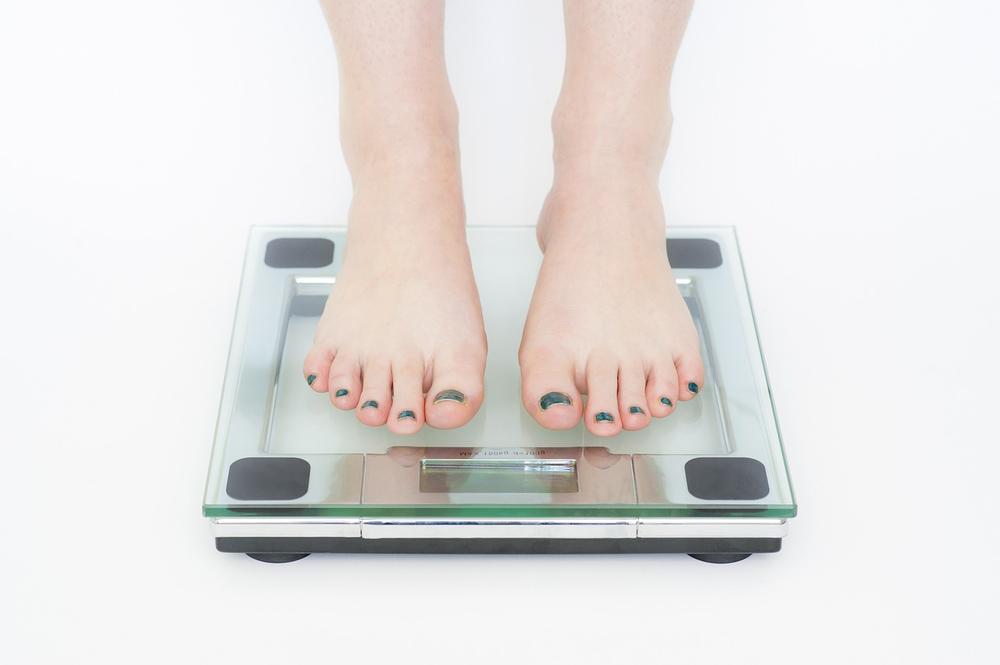
Therefore, making sure your cat stays at a healthy weight should be a priority for you.
Obesity-related health concerns in cats are no joke, so take steps to maintain their wellbeing by providing a balanced diet and plenty of opportunities for exercise.
Keep your furry friend fit and happy by keeping their weight in check.
Wrap-up
- Cats need to store up fat reserves to produce milk.
- Steps must be taken to help the cat lose weight.
- Nursing cats should consume up to four times as much as regular cats.
- Size and age of kittens affect calorie requirements of mother cats.
- Uncontrolled eating habits can contribute to post-pregnancy weight gain.
- Increasing exercise and adjusting diet can aid in weight loss.
- Reduced activity levels, genetic predisposition, and overfeeding can cause overweight cats.
- Mama cats require extra nourishment as kittens approach weaning stage.
- Cats may show signs of pregnancy even after delivery.
- Nursing does not prevent a female cat from getting pregnant again.
- Cats usually regain pre-pregnancy weight within weeks of weaning.
- Cats should have access to moistened dry food or kibble throughout the day.
- Spaying or neutering should not cause pain or abnormal behavior.
- Monitoring body condition score is essential in assessing weight.
- High-quality cat food formulated for nutritional needs is advisable.
And that wraps up today's article.
If you wish to read more of my useful articles, I recommend you check out some of these: Nursing Cat Always Hungry, How Long Can a Cat Go Without Eating, Can Pregnant Cats Drink Milk, Are You Adding Water to Dry Cat Food, and How Many Kittens Can a Cat Nurse
Talk soon,
-Sarah Davis